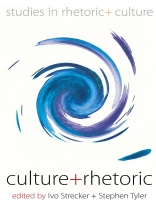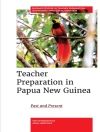While some scholars have said that there is no such thing as culture and have urged to abandon the concept altogether, the contributors to this volume overcome this impasse by understanding cultures and their representations for what they ultimately are – rhetorical constructs. These senior, international scholars explore the complex relationships between culture and rhetoric arguing that just as rhetoric is founded in culture, culture is founded in rhetoric. This intersection constitutes the central theme of the first part of the book, while the second is dedicated to the study of figuration as a common ground of rhetoric and anthropology. The book offers a compelling range of theoretical reflections, historical vistas, and empirical investigations, which aim to show how people talk themselves and others into particular modalities of thought and action, and how rhetoric and culture, in this way, are co-emergent. It thus turns a new page in the history of academic discourse by bringing two disciplines – anthropology and rhetoric – together in a way that has never been done before.
Table of Content
Preface
Acknowledgements
Introduction
Ivo Strecker and Stephen Tyler
PART I: THE CHIASM OF RHETORIC AND CULTURE
Chapter 1. The rhetoric culture project
Stephen Tyler and Ivo Strecker
Chapter 2. Precursors of rhetoric culture theory
Christian Meyer
Chapter 3. Homo rhetoricus
Peter Oesterreich
Chapter 4. Listening culture
Daniel Gross
Chapter 5. Practice of rhetoric, rhetoric of practice
Vincenzo Cannada Bartoli
Chapter 6. Chiastic thought and culture : A reading of Claude Lévi-Strauss
Boris Wiseman
Chapter 7. When fair is foul and foul is fair : Lessons from Macbeth
Anthony Paul
PART II: FIGURATION – THE PERSUASIVE POWER OF DEEDS AND TROPES
Chapter 8. Rhetoric truth and the work of trope
Alan Rumsey
Chapter 9. Figuration, a common ground of rhetoric and anthropology
Philippe-Joseph Salazar
Chapter 10. Tropical foundations and foundational tropes of culture
James W. Fernandez
Chapter 11. Embodied rhetorics of earnest belief
Michael Herzfeld
Chapter 12. An epistemological query
Pierre Maranda
Chapter 13. Beyond the unsaid : Transcending language through language
Paul Friedrich
Chapter 14. Future imperfect : Imagining rhetoric culture
Robert Hariman
Notes on Contributors
Bibliography
Index
About the author
Stephen Tyler (1932-2020) was Herbert S. Autrey Professor of Anthropology at Rice University, Houston, Texas. He conducted fieldwork with the Koya tribe in the south of India and co-founded the International Rhetoric Culture Project in 1998. His was editor of Cognitive Anthropology (1969), and author of India: An Anthropological Perspective (1973); The Said and the Unsaid (1978); and The Unspeakable (1987).












